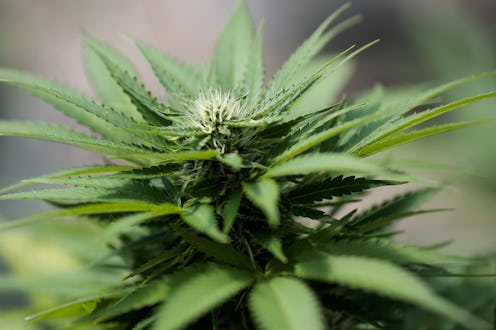Life
How Cannabis May Reverse Aging Effects On The Brain

As young and carefree as you are now, the truth is that someday you won't be quite so young. Shocking, I know. But as it turns out, the secret to staying young may be the thing your parents wanted you to stay away from most: low daily doses cannabis may reverse the effects of aging, according to a new study.
This interesting discovery was uncovered while testing mice for ways to improve brain function. Tetrahydrocannabinol, or THC, was fed to young and old mice for a month. While regular study of young adults who frequently use marijuana pointed toward a decline in memory function, little was known about its effects on older brains until this study — and results like these could change how we treat cognitive disorders like Alzheimer's and dementia forever. According to the study's authors, the young mice's performance during testing declined, but unexpectedly, older mice improved so much that they performed tasks with similar skill to the young mice.
The German scientists who published their findings in Nature Medicine described the results as "profound, long lasting improvement of cognitive performance" linked to restoring gene expression in the brain. An older mammal brain on THC, explained the team, may be improved by stimulating a pathway in the brain and nervous system called endocannabinoid system.
Michael Bloomfield, a clinical lecturer in psychiatry at University College of London, echoed that excitement at what it could mean in the future.
"What is particularly exciting about this research is that it opens up a whole new chemical system, the endocannabinoid system, as a potential target for new avenues of research, which could include illnesses like dementia," said Bloomfield to The Guardian.
Before you think about testing this out for yourself, there are a few more things to consider. The next challenge for scientists is figuring out how this translates to humans. While the testing results were positive for mice, we have yet to discover how the same test will impact the human brain.
Another thing to consider is that, as a nation, the U.S. isn't quite there yet when it comes to legalizing marijuana for recreational or medical use. According to Governing, only 26 states and Washington, D.C. have laws in place "broadly legalizing" marijuana. This is more than half, but if you don't live in a state where its legal or read up about state passed measures for legalization, this might not be the opportune time to start a new lifestyle.
The good news is that as a culture, we are one step closer to creating a fountain of youth. Even if it's just a stream right now, our older, more mature brains may have science to thank for that.